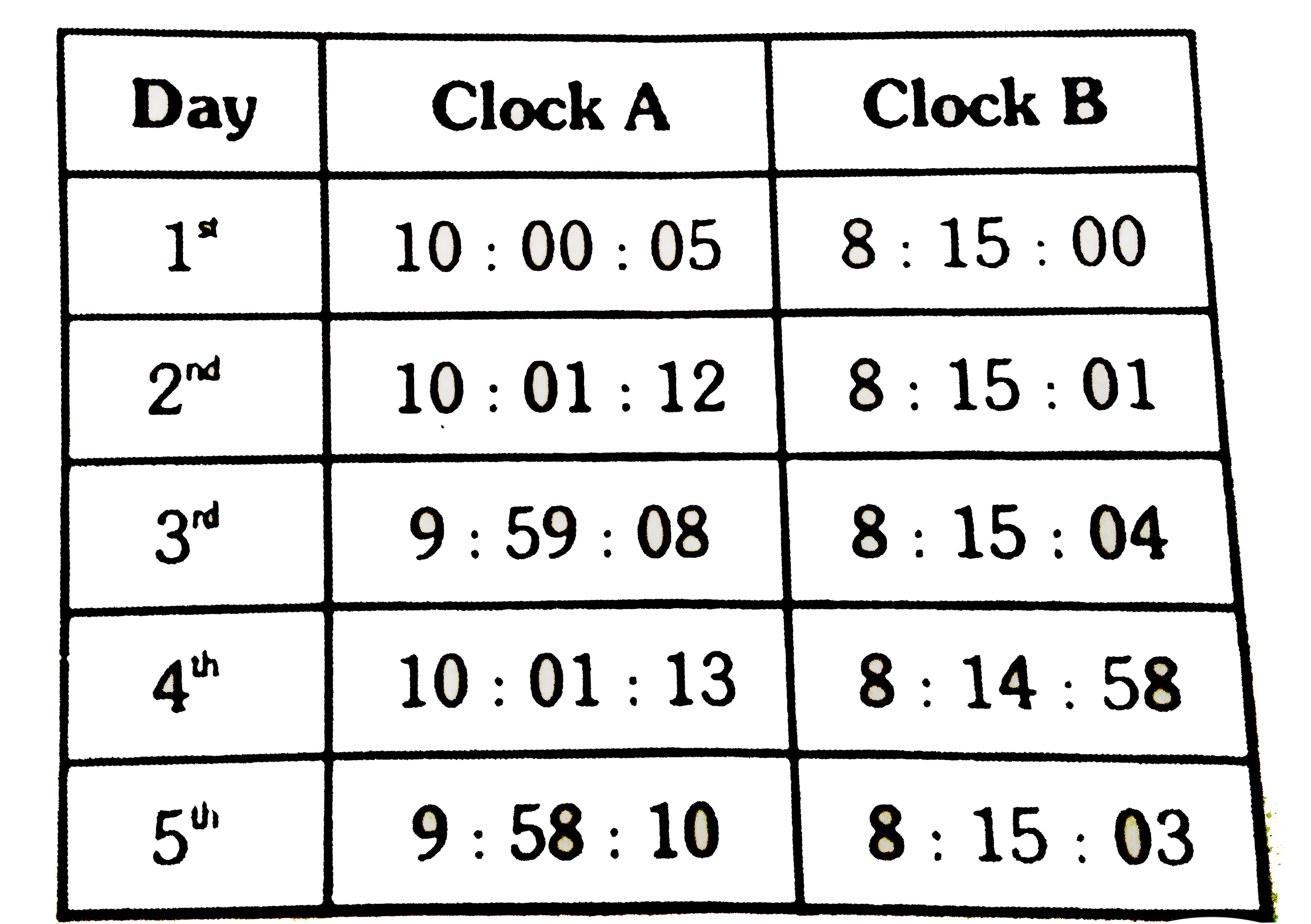Atomic clock generally used in the national standards, is based on the periodic vibrations produced in a
±1x10−13s
±1x1013s
±1x10−31s
±1x10−33s
The correct Answer is:A
Step by step video solution for Atomic clock generally used in the national standards, is based on the periodic vibrations produced in a by Physics experts to help you in doubts & scoring excellent marks in Class 11 exams.
Updated on:21/07/2023Similar Questions
Strong acids are generally used as standard solution in acid-base titrations because:
View SolutionTwo important physical evidences supporting the synergic bonding in non-classical complexes are bond lengths and vibrational spectra. Vibrational spectra is based on the fact that the compression and extension of a bond may be analogous to the behaviour of a spring and obeys Hook's law.
¯v=12πc√kμcm−1
where, k=force force constant of the bond which is directly proportional to bonnd strength of CO μ=reduced mass of ligand
¯v=stretching frequency of the CO bond
c=velocity of light
Q. In Mn2(CO)10 carbonyl complex, the d-orbital of Mn-atom which can not be involved in synergic bonding betwee Mn and CO ligands:
View Solution
Knowledge Check
Assertion:The atomic size generally increases across a period and decreases down the group.
Reason:Atomic size depends upon valence shell electronic configuration.Aa. Both Assertion and Reason are true and Reason is the correct explanation of Assertion.Bb. Both Assertion and Reason are true and Reason is not the correct explanation of Assertion.Cc. Assertion is true but Reason is false.Dd.Both Assertion and Reason are false.
The reference standard used for defining atomic mass is
View SolutionHow it can be proved that the basic structure of the Modern Periodic Table is based on the electronic configurationof atoms of different elements?
View SolutionTwo clocks are being tsted against a standard clock located in the national laboratory. At 10:00:00 AM by the standard clock, the readings of the clocks are :

If you are doing an experiment that requires prescision time interval measurements, which of the two clock will you prefer ?
(a) Clock A
(b) Clock B
(c) Either Clock A or B
(d) Neithr A nor B
View SolutionTwo clocks A and B being tested against a standard clock located in the national laboratory At 10.00 AM by the standard clock, the readings of the two clocks are shown in following table
DayClock AClock BIst10:00:068:15:00IInd10:01:138:15:0.1IIIrd9:59:0.88:15:04IVth10:02:158:14:58Vth9:58:108:15:02
If you are doing an experiment that requires precision time interval measurements, which of the two clocks will you prefer ?
View SolutionIn order to measure period of a simple pendulum using a stop clock a student repeated the experiment for 10 times and noted down the time period for each experiment as 5.1, 5.0, 4.9, 5.1, 5.0, 4.9, 5.1, 5.0, 4.9 ,5.0s
the correct way of expressing the result for the period is
View SolutionThe periodicity is related to the electronic configuration. That is, all chemical and physical properties are a manifestation of the electronic configuration of the elements.
The atomic and ionic radii generally decrease in a period from left to right. As a consequence, the ionization enthalpies generally increase and electron gain enthalpies become more negative across a period. In other words, the ionization enthalpy of the exterme left element in a period is the least and teh electron gain enthalpy of the element on the exterme right is the highest negative. This results into high chemical reactivity at the two extermes and the lowest in he centre. Similarly down the group, the increase in atomic and ionic radii result in gradual decrease in ionization enthalpies and a regular decrease (with exception in some third period elements) in electron gain enthalpies in the case of main group elements.
The loss and gain of electrons can be co-related with the reducting and oxidising behaviour, and also with metallic and non-metallic character respectively, of the elements.
Which of the following statements is correct?
View SolutionThe periodicity is related to the electronic configuration. That is, all chemical and physical properties are a manifestation of the electronic configuration of the elements.
The atomic and ionic radii generally decrease in a period from left to right. As a consequence, the ionization enthalpies generally increase and electron gain enthalpies become more negative across a period. In other words, the ionization enthalpy of the exterme left element in a period is the least and teh electron gain enthalpy of the element on the exterme right is the highest negative. This results into high chemical reactivity at the two extermes and the lowest in he centre. Similarly down the group, the increase in atomic and ionic radii result in gradual decrease in ionization enthalpies and a regular decrease (with exception in some third period elements) in electron gain enthalpies in the case of main group elements.
The loss and gain of electrons can be co-related with the reducting and oxidising behaviour, and also with metallic and non-metallic character respectively, of the elements.
The correct order of the metallic character is:
View Solution
